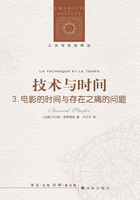I shall proceed no further in the study of the social arrangements of the Russian manor because they appear to be, so far as the ownership of land is concerned, very like those of a free village. This is not surprising to one who knows the small difference which exists between the arrangements of a German manor, or Hof, and those of a free commune, or Dorf-gemeinde. The proprietor was too well pleased to see his yearly revenue guaranteed by the unpaid service of the villeins, to meddle with their internal arrangements. The villeins were accordingly allowed to choose their own executive officers, to have their elders, their "good men," or judicial assistants, and to apportion taxes and arrange the land ownership at their regular meetings, or folkmotes. Such being the case, I see no reason why the agrarian communism practised by the Russian peasantry should be much affected by their loose dependence upon the landlord, at least, before the time when serfdom was completely established and the peasant was prevented from removing from the manor.
The general characteristic of the old Russian community may be given in few words: it was a kind of ownership, based on the idea that the true proprietor of the land was none other than the commune. The rights of the commune to the soil occupied by the individual households appears in the indivisibility of the waste and forest lands, and in the fact that vacant shares are regularly disposed of by the commune, and that nobody is allowed to occupy a piece of ground lying within the limits of the village common, unless he is authorised by the local authorities.
Arable land and meadows are, as a rule, in the hands of private households, which pay taxes and perform manorial labour in direct proportion to the amount of land they own. This ownership does not suppose the existence of certain limits which nobody is allowed to infringe. It implies only the right to have a definite share in the three fields, which constitute the agricultural area of the village. The shares are not equal, but differ in direct proportion to the payments which the household is called upon to make, partly to the State, and partly to the lord of the manor.
Periodical redistributions are unknown, and no mention is made of the run-rig system of some modern English and Irish manors.
Thus constituted, the old Russian village community appears to be very like that of medieval England with its system of open fields, its hides and virgates. It may be also compared to the German mark, so far as the mark is composed of a set of villages subdivided into units partly financial, partly territorial, called Hufen, and securing to their private holders, like the English virgates, the right to have a distinct share in the arable fields and in the meadows of the village.
Now that we are aware of the peculiar features of the medieval village community, let us ascertain the reasons which have produced a complete revolution in its interior organisation by the introduction of the principle of equal division of the soil among its individual members, and the system of periodical allotments of ground in order to secure this equality.
Two facts seem to have contributed to this result; the first was the increase of population, which, as we have already shown in the instance of Little Russian communes, sooner or later induces the majority of persons holding small shares to force the rest to proceed to a redistribution of the soil. The other fact is the replacing of the land-tax by a sort of capitation tax, and the introduction of the principle of mutual responsibility, in matters of taxation. The first of these causes, increase of population, remained inoperative as long as the peasant retained the liberty of removing freely from one place to another. Much ground was lying waste. Landowners had no other thought than how to induce new colonists to settle on it; with this end in view they regularly freed them from all taxes for a period of three years. Those of the villagers, who thought themselves sacrificed to the interests of their neighbours could, therefore, easily find the land they wanted and that under very favourable conditions. They had only to leave the village they inhabited and seek for new homes, either on the still unoccupied steppes or on the manors possessed by the crown, the church, or the landed aristocracy.
Such was no longer the case when serfdom became a general rule, and the right of free migration was refused to the peasant.
This happened during the period which extends from the end of the sixteenth to that of the seventeenth century. Two decades later followed the great change in matters of taxation when Peter the Great abolished the land-tax, and introduced the capitation-tax.
This happened in the year 1719. Mutual responsibility of persons belonging to the same village was introduced, and both landlords and peasants were allowed to take preventive measures against those who might seek to escape the obligation of paying the personal tax by withdrawing from their habitations.
When this revolution was accomplished and each household began to be taxed, not according to the quantity of land it owned, but according to the number of persons attributed to it in the taxation returns, the grossest injustice would necessarily arise if the soil remained in the hands of its then holders.















